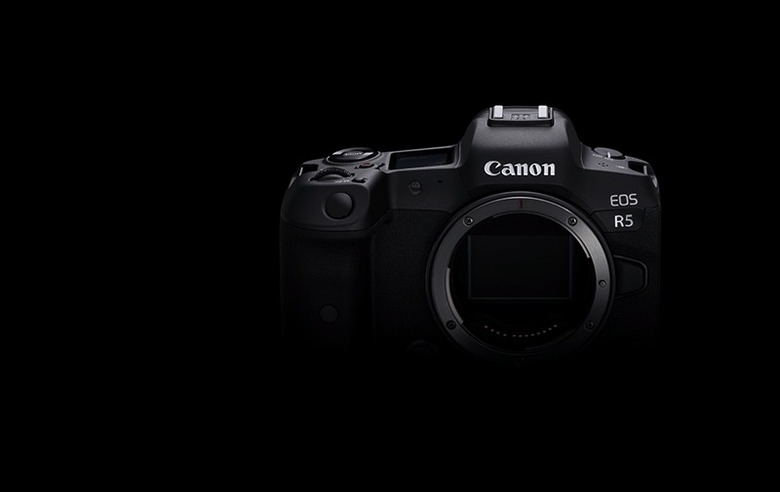Canon EOS R5 Doubles-Down On Details With Excellent 8K News
Canon has spilled new details on its hotly-anticipated EOS R5 mirrorless camera, which is yet to arrive on shelves but is already proving fierce discussion about its video capabilities among other talents. The company announced the upcoming camera back in mid-February, with the headline features being its full-frame sensor and 8K video recording.
That came as good news for videographers, but they still, unsurprisingly, had questions. Canon wasn't quite ready to drop the full spec sheet at that point, however, and so uncertainties about whether the EOS R5 would rely on things like cropped sensor shooting during video were left unanswered.
Now, Canon is wading into that with more EOS R5 details. Describing the new info as "further development specifications," in a press release spotted by dpreview, the info-dump aims to "shut down speculation that some of its revolutionary specifications are 'a fantasy'." Part of that is, indeed, full sensor width shooting of 8K video.
That'll be up to 30p frame rates, Canon confirms. All 8K video modes in the EOS R5 will support Dual Pixel CMOS AF, too. That's a sensor-based, phase detection autofocus system which first appeared in the EOS 70D, and which relies on two separate microlenses atop each pixel of the sensor. During the autofocus detection, the two halves are compared to lock the AF; then, during capture, the two signals are combined for the final frame.

Canon had already confirmed that there'd be 12 fps mechanical burst shooting for stills, and 20 fps with the electronic shutter. The EOS R5 will support advanced animal AF it says today, which will be able to spot dogs, cats, and birds. That system won't just rely on eyes, but the face and body, useful when your pet just won't sit still for its portrait and keeps looking away.
The camera will have in-camera image stabilization, which will work in tandem with lens stabilization. Storage is courtesy of dual card slots, and there'll also be the option of automatic transfer of image files from the EOS R5 to Canon's cloud platform. That will require the WiFi-enabled camera to be within range of a previously-connected wireless access point, such as your home router.
While interest in the EOS R5 is certainly high, Canon can't count solely on its most enthusiastic fans for success. Sony has been winning over photographers with a taste for video in recent years with its Alpha-series of mirrorless cameras, which have been pushing the envelope in terms of resolution and more. We'll have to wait until later this year to see just how the EOS R5 holds up in comparison.
